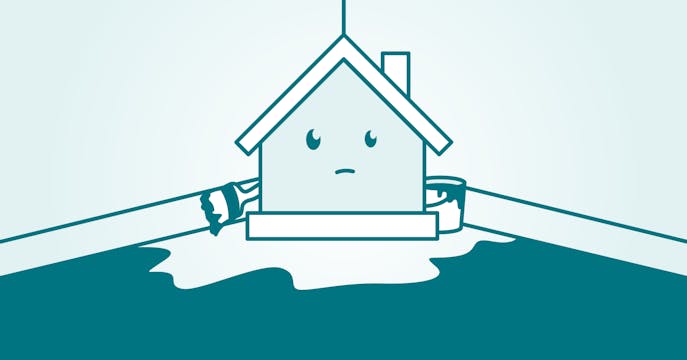Renewal choices to make now to help you save the most.
Ultimately, your renewal strategy should take into consideration your appetite for risk, how much you could save over time, how much your budget can handle, and just how soon you'd like to see some rate relief.
The lowest rate around: our 6-month Rate Relief™ mortgage.
Did you know? This product (if you're buying a home or looking to switch lenders at renewal) is offered by our in-house lender, THINK Financial. It comes with a much lower short-term rate and is also lower than our best 5-year rate.
Choosing this limited-time special mortgage (that comes fully-featured, by the way; some conditions apply) can lower your payments now, plus it gives you time to see what rates might do.
If rates drop before the term is up, you'll be able to renew into those lower market rates. THINK Financial offers industry-best rates and flexible mortgages to choose from.
Learn more here or talk to your expert True North broker to see if this mortgage is right for you.
A short-term fixed rate may allow renewal into lower rates sooner.
A 5-year fixed mortgage rate is usually the popular choice for Canadian home buyers and owners (often chosen 60% of the time) for unchanging payments that allow easier budgeting and longer protection against increases, especially during times of rate volatility.
But you may want to consider renewing with a shorter-term fixed rate, such as 2- or 3-year, which might get you into a lower mortgage rate sooner if interest rates start dropping in the next year or so.
It means you'll need to succumb to having higher payments (with a higher short-term rate) while you wait — but if your budget can handle it, you might see relief faster than going with a 5-year term.
The rewards (and risks) of a variable rate.
How long do we have to loiter in this high-rate town square? If the rumour around town is that we're at or near the end of the Bank of Canada's tightening cycle — choosing a variable rate will allow you to leave the current high rates behind and get into lower payments quicker.
Some mortgagees have held on to their variable rates during the meteoric rate rise, though most have fled into the relative 'safety' of fixed rates over the last year or so. (This past summer, our in-house lender saw clients choose a variable vs. a fixed rate mortgage only 15% of the time when around 30% is typical).
However, if variable rates are at their peak, choosing a 5-year variable rate at renewal means you'll see rate relief at each drop announced by the central bank (i.e. you don't have to wait for the end of your term) — assuming you have payments that adjust.
The risk is that economic and world events conspire to take rates even higher to fight inflation. You'll need to consider your ability to hang on if that happens — and if you'd still save in the end when rates do start to drop.
Note: If you have a fixed-payment variable rate mortgage (called a VRM), be aware that prime rate drops won't lower your payments (just your amortization), and you likely won't be able to request lower payments during your term. Read more here about how to avoid payment shock at renewing with a VRM.





